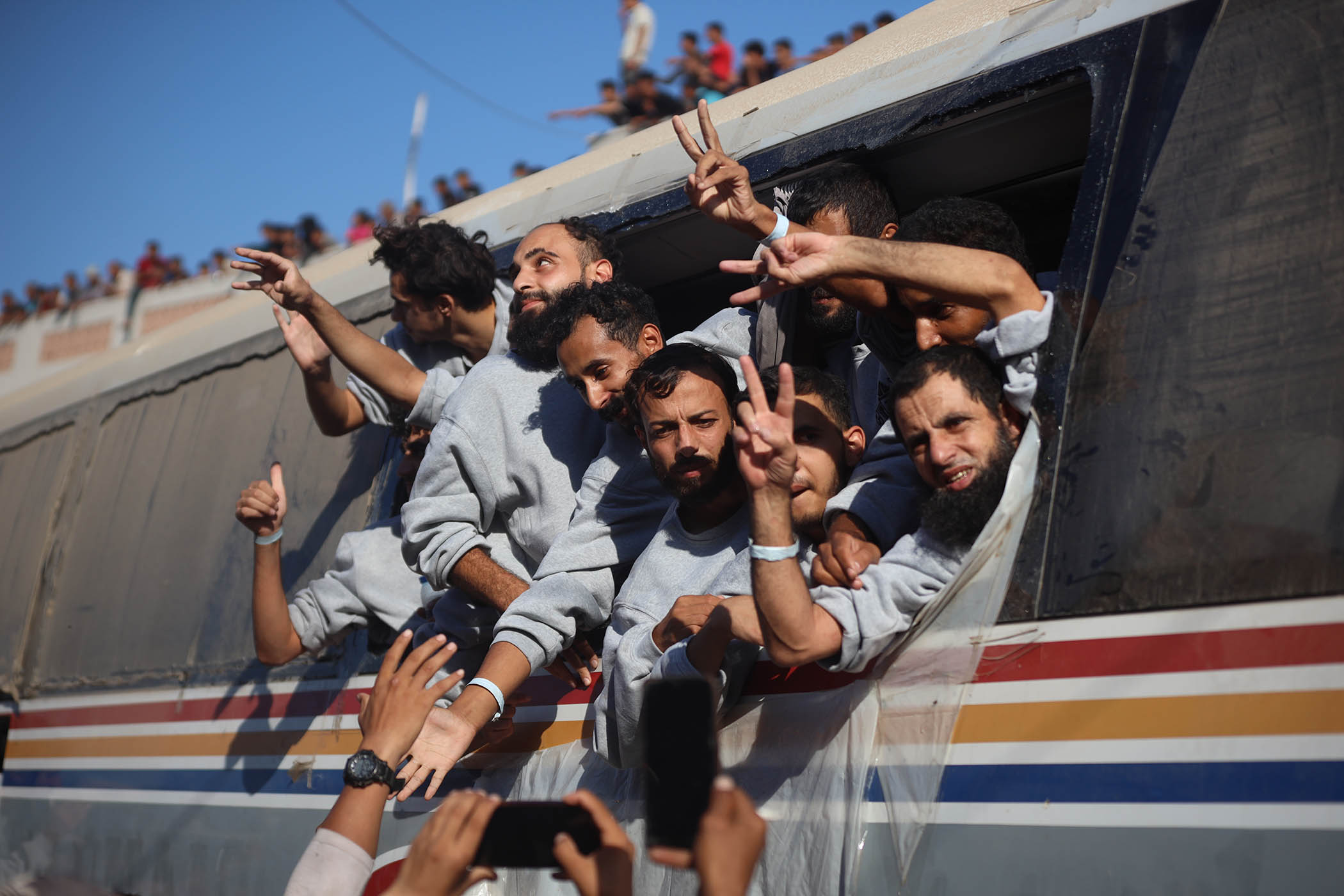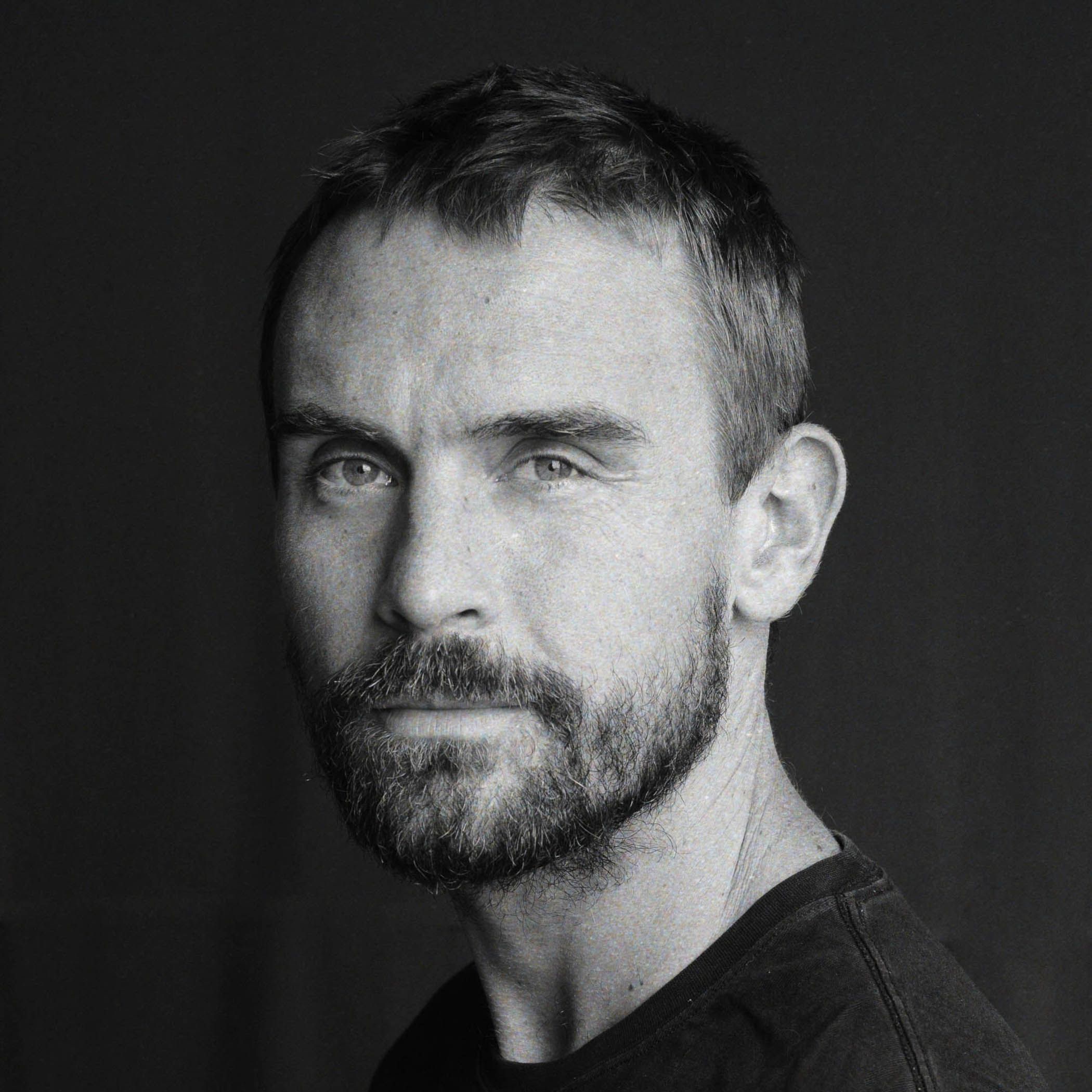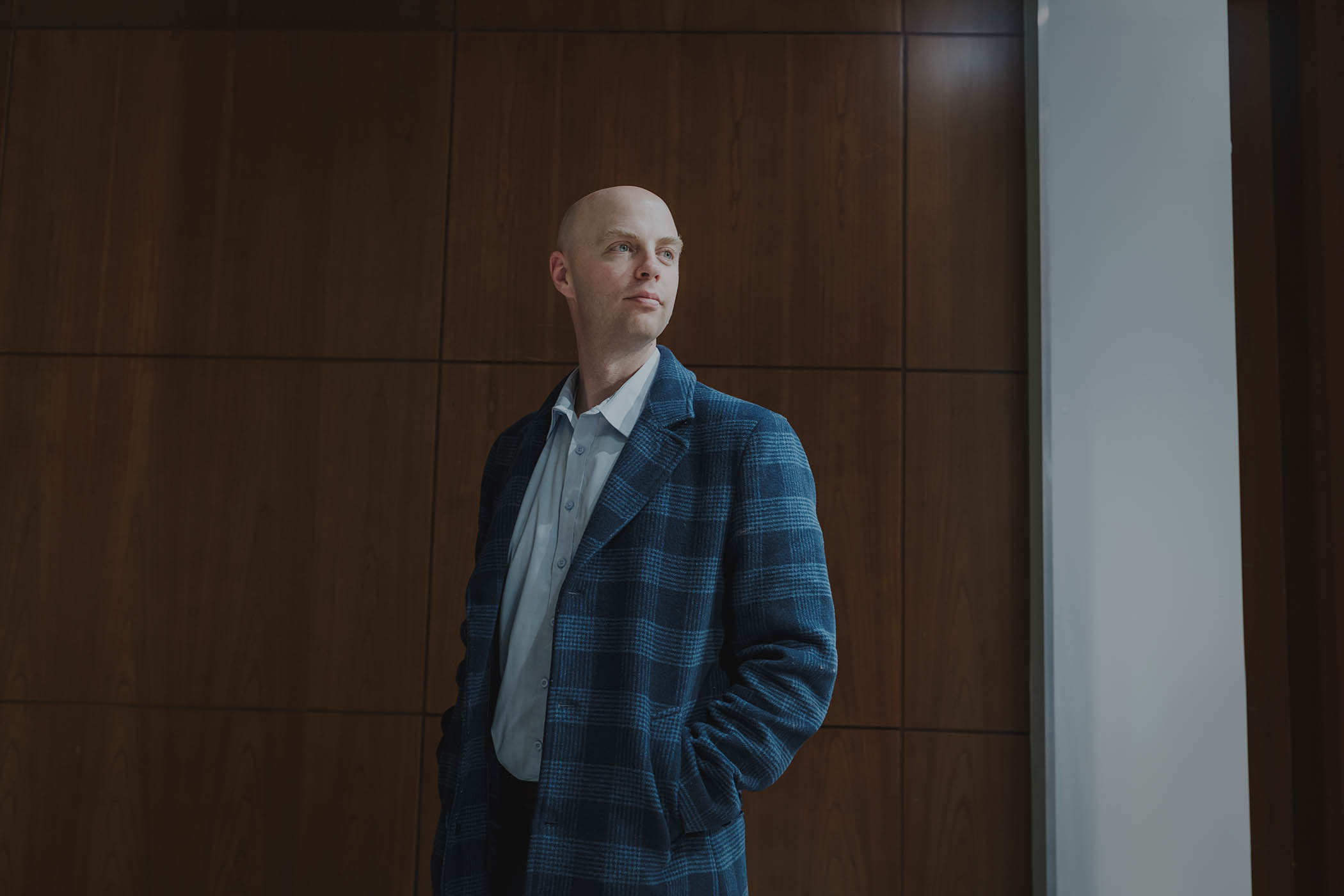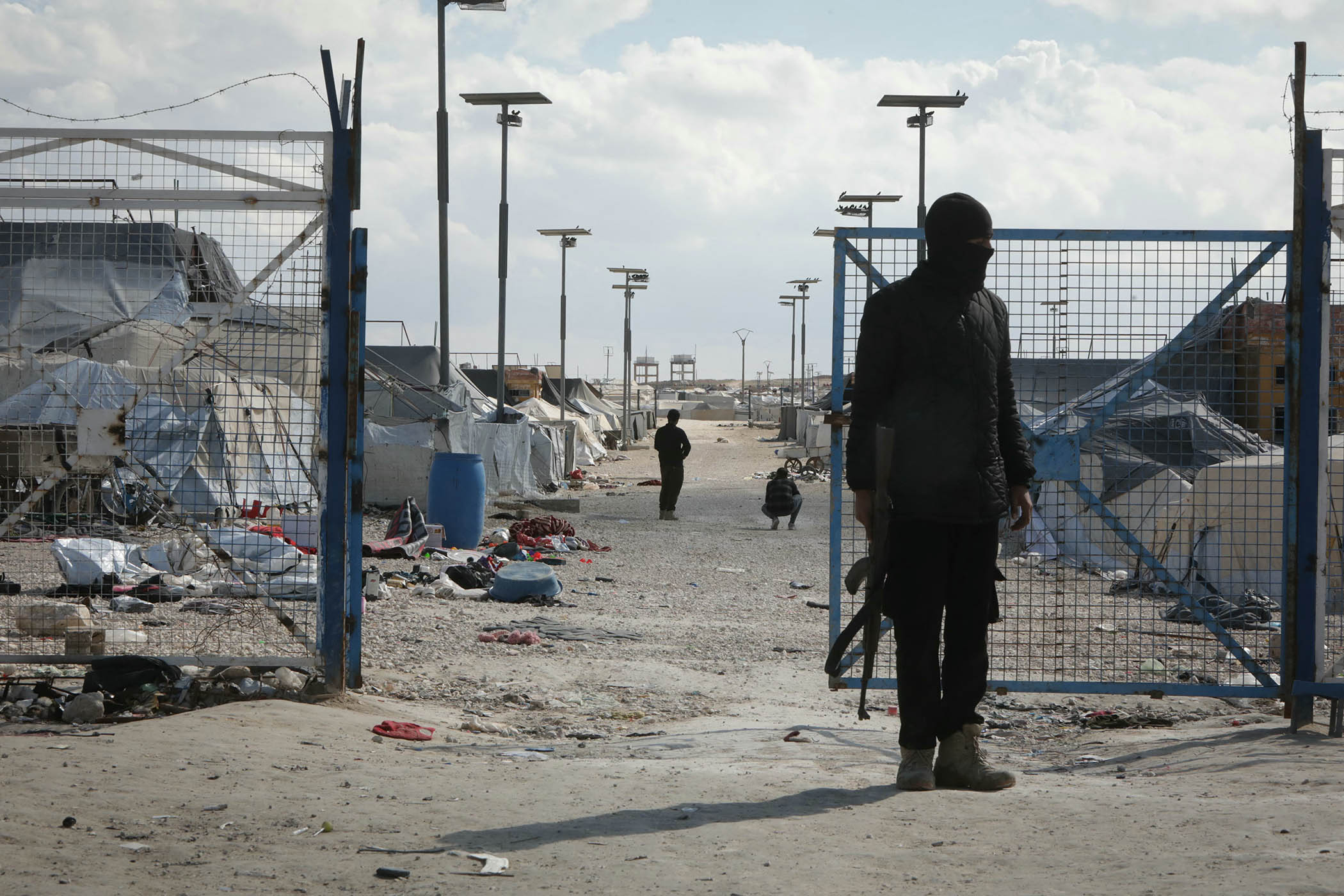The air inside the hospital ward was thick with relief and rage. Around Samer Abu Diyak’s frail frame, family and friends pressed close, their whispers falling silent as he began to speak. Only hours earlier, the 42-year-old had been freed from Israel’s Ofer prison after two decades behind its walls – and yet freedom had arrived with fresh bruises.
Lying in Ramallah Hospital, his voice, thin but unflinching, cut through the hush. “We are happy, of course,” he said, pausing to draw breath. “But we are suffering. The prisoners are suffering – mentally and physically. Just this morning I was beaten.”
Samer’s cousin, Ali Abu Diyak, a former Palestinian justice minister, leaned in to explain what had happened that morning. When Samer refused to kiss the Israeli flag on his way out of Ofer, guards beat him with the flagpole, he said. Samer later lifted his trouser leg to reveal fresh bruises.
Samer was one of 77 prisoners and detainees released into the city of Ramallah in the West Bank on Monday just hours after all the living Israeli hostages were released from Gaza. Detained in 2005, he was serving one life sentence plus 25 years for membership in an unrecognised organisation, shooting at people and attempted murder. Though these charges can be a catch-all for anyone involved in Fatah’s military wing.
‘We are happy, of course. But we prisoners are suffering, mentally and physically – just this morning I was beaten
‘We are happy, of course. But we prisoners are suffering, mentally and physically – just this morning I was beaten
The swap between Hamas and Israel marked the first step of a ceasefire agreement that could end the two-year war on the besieged strip.
Families and supporters pushed past police and surrounded buses outside the Ramallah Cultural Centre as the Palestinian men disembarked. Their gaunt bodies were welcomed by a scrum of tears and hugs. Many returning to loved ones for the first time in more than 20 years. Men wept as they held the slim, angular bodies of their brothers and sons, mothers kissing them on each haggard cheek and thin hand, every prisoner’s shoulders adorned with the black and white Palestinian keffiyeh scarf.
However, not everyone was celebrating. Aida Abu Rab collapsed to the ground in tears as she heard the news that her brother, Murad, had been released into Egypt and not the West Bank. The family had been waiting since dawn to hug him after seeing his name on the list of prisoners to be released into Ramallah. Their hopes were dashed when he didn’t get off the bus. A police woman, in tears herself, tried to help Aida to her feet but she was inconsolable.
In total, 88 Palestinians were released from Israeli prisons and transferred to the occupied West Bank or Jerusalem on Monday. Almost 2,000 others — including about 1,700 detainees from Gaza who had been held without charge during the war – were sent back to the enclave. A further 250, most of whom had been imprisoned for life by Israel, were deported to Egypt, with no prospect of return.
Two miles away from the tears and hugs at the cultural centre, the atmosphere was subdued in the Al Am’ari refugee camp. Um Shadi had been waiting 26 years to hug her 48-year-old son Ramzi again, but – like the Abu Rab family –her celebration had been stolen from her. After being told he would be released into Ramallah, the family found out on Monday morning he was being sent to Egypt, never to return.
Two days earlier she’d barely been able to contain her excitement.
“I was so excited when I heard the news he would be released,” Um Shadi had told The Observer from her home in the camp, her grandchildren perched on the armrests of her chair. “I have problems with my legs but I jumped up and started running. I can’t wait to get him home and married,” she’d laughed.
Two days later, the scene could not have been more different. Um Shadi sat in silence surrounded by worried looking family members. No one laughed, the smiling grandchildren were gone, the excitement replaced by a sombre mood.
According to a family member, who refused to give his name out of fear of the Israeli military, an army captain had called him up to tell him not to celebrate Ramzi’s release. “No banners, no cake, nothing.” On Sunday night, Israeli soldiers came to visit the family twice, again warning them not to celebrate. This gave the family false hope that Ramzi would certainly be home on Sunday.
This isn’t the first time the family’s celebrations have been thwarted. Accused of killing an Israeli during the second Intifada when he was 27, Ramzi was arrested on his wedding day. The Israeli military arrived at the venue declaring they didn’t intend “to hurt anyone”, but they just wanted Ramzi. The family never saw proof of the alleged crime during the court case and to this day Um Shadi maintains she doesn’t know the name of the person her son was accused of killing. Once Ramzi was sentenced to life in prison, he divorced his wife, telling her to remarry and get on with her life. Now he is free, but the question of whether he will make it back home to Ramallah remains unanswered.
According to HaMoked, an Israeli human rights NGO assisting Palestinians, 87% of Palestinian prisoners and detainees in Israeli detention are held without trial. As of October 2025 Israel holds 1,461 sentenced prisoners, 3,378 remand detainees and 3,544 administrative detainees held without trial, of a total of 11,056.
Administrative detention, a relic of the British Mandate in Palestine, allows authorities to hold people indefinitely without charge or trial, on the claim they may commit an offence in the future. Ordered by a regional military commander and based on secret evidence, detainees are denied access to the case against them.
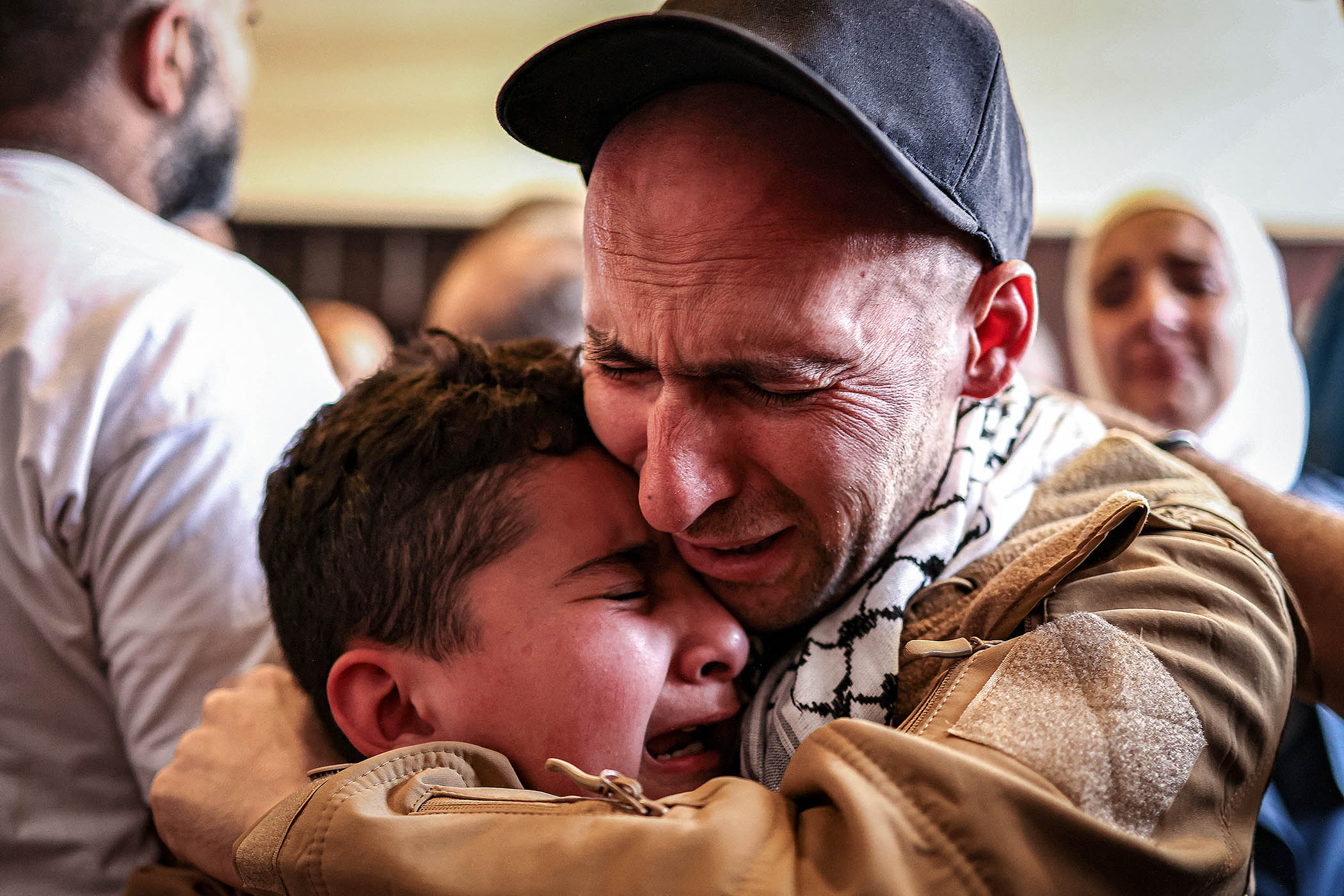
One of the freed Palestinian prisoners embraces a boy after arriving by bus at the Ramallah Cultural Centre
Israel insists its prison system operates within the bounds of international law. However, Israeli rights group B’Tselem has accused the security services and prison authorities of systemic abuse. It says the Israel Security Agency isolates detainees, subjects them to degrading conditions and, at times, torture — practices that violate international law. The group adds that the prison service enables these methods by maintaining inhuman holding conditions.
Eighty miles away in Gaza, Haitham Muaen Salem of Beit Lahia crumpled to his knees, his world collapsing around him. Having just been released from Israeli detention, he learned his wife and children had been killed in an Israeli airstrike just days before. His daughter was due to celebrate her second birthday just five days after his release. In a fleeting moment of hope, Salem had hastily made his daughter a bracelet as a gift on learning of his release. On Monday, he clutched it in his shaking hands before holding his head and sobbing.
“My children died,” he cried again and again.“My loved ones died. I have no one left.”
As celebrations continued across the West Bank, Samer Abu Diyak’s mother and father waited with eager anticipation for their son to return to their small village close to Jenin refugee camp. As Samer and his relatives waited for the doctor to give him the all clear, he explained that he used to be a big man before he lost four stone while in prison. Then he paused and his eyes glazed over again.
“I appreciate everything the people did for me. But there are thousands of prisoners still suffering in jail,” he said softly, as his friend Yasser held a reassuring hand on his shoulder. “Therefore, our happiness is not complete until all the prisoners are released.”
Newsletters
Choose the newsletters you want to receive
View more
For information about how The Observer protects your data, read our Privacy Policy
Photograph by Majdi Fathi/NurPhoto, Oliver Marsden for The Observer, Zain Jaafar/AFP via Getty Images
